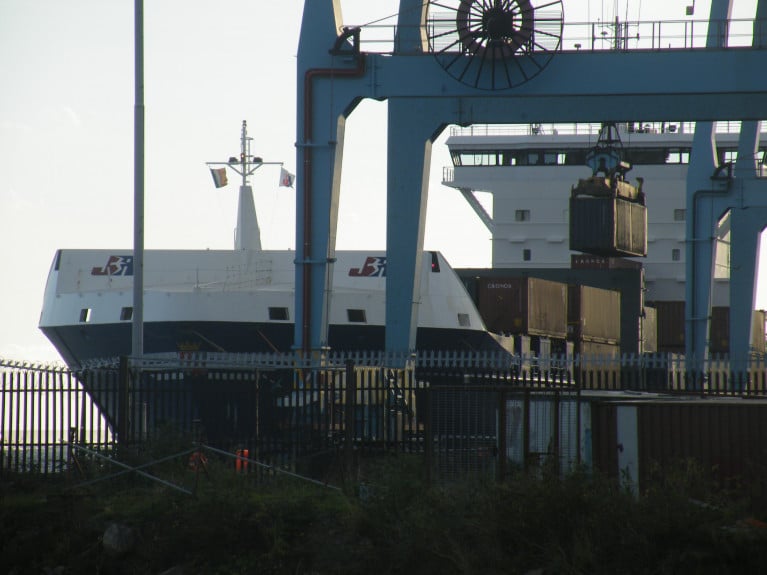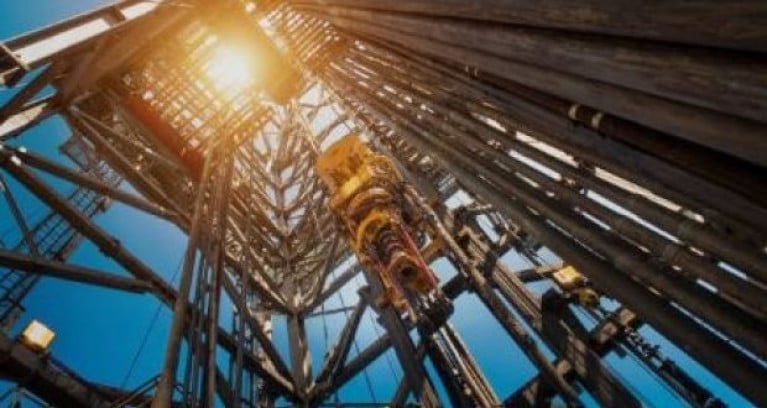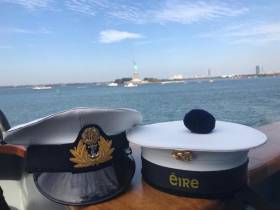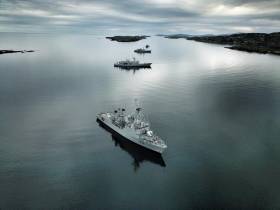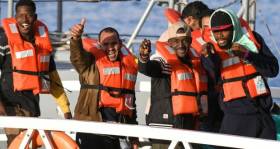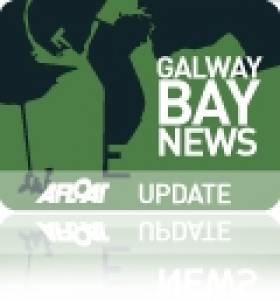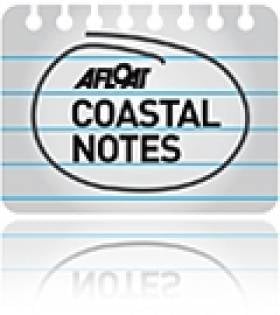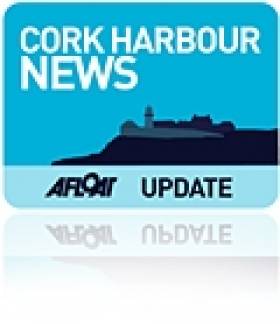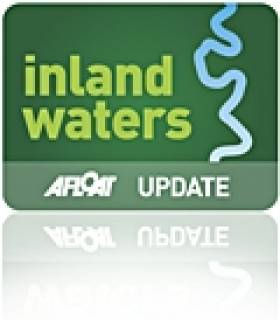Displaying items by tag: Government
The Irish Exporters Association (IEA) has welcomed the publication of the Government’s ambitious National Economic Recovery Plan 2021.
The Association, which has long called for an economic restart plan in the wake of Covid-19, believes that the Plan is a key part to the country’s route to a future steeped in sustainable growth, trade and investment.
Yesterday’s announcement bridges the gap of uncertainty that has loomed over businesses small and large for too long and gives businesses direction for longer term planning, which has been overshadowed by world events.
Chief Executive of the Irish Exporters Association Simon McKeever commented: “Exporters have faced untold challenges over the past year with both Covid-19 and Brexit simultaneously altering supply chain operations and trading routes. Yesterday’s announcement will be met with relief, albeit challenges remain and alterations in how businesses trade may become permanent arrangements.
Ensuring that there is a balanced and inclusive recovery as set out in the Plan is appreciated. There is a real opportunity for altered working arrangements to achieve better regional development and indeed contribute to achieving national climate targets.
We particularly welcome that the Plan embraces sustainability and includes it among the four pillars. Decarbonisation is fundamental to achieving the national and indeed the EU aim of carbon-neutrality by 2050. Actions must be taken now to achieve this and the opportunity of reinvigorating the Irish economy through the National Economic Recovery Plan is an apt opportunity.”
Government Support for Move on Fracked Gas Likely to Scupper Shannon Estuary Terminal Plan
A new policy statement from the Government will prevent Ireland from importing fracked gas, which is likely to scupper moves to build a liquefied natural gas (LNG) terminal in the Shannon estuary.
The statement, drawn up by Minister for the Environment Eamon Ryan, makes clear “it would not be appropriate to permit or proceed with development of any LNG terminals in Ireland, including the Shannon LNG project” pending a review of the security of energy supply for Ireland’s electricity and natural gas systems.
Planning authorities, when assessing any planning application, must have regard to relevant Government policy. A legal ban on the importation of fracked gas cannot be put in place at this time, Mr Ryan said, as doing so would require changes to international rules.
Fracking involves drilling down into the earth and directing a high-pressure mixture of water, chemicals and sand into the rock to release gas, which then flows to the head of a well.
Environmental campaigners previously criticised the Government for not having a ban on fracked gas enshrined in the Climate Action Bill, which is currently going to through the Oireachtas.
More on this story from The Irish Times here.
Tax Credit to Be Introduced By Government for Sea-Going Naval Personnel
A special tax credit by the Government is to introduced for sea-going naval personnel from next year.
Serving members of the Naval Service, who spend at least 80 days at sea, will be eligible for the credit worth €1,270 per annum.
It will be introduced into the Dáil by way of an amendment to the Finance Bill tomorrow.
The challenges facing the Defence Forces over pay, conditions, recruitment and retention have been getting increased attention over the past year.
Minister for Defence Paul Kehoe said the introduction of a special tax credit for sea-going naval personnel is a step towards addressing those challenges.
For more RTE News reports here.
It is expected that the Government will announce a new review of pay for up to 2,500 members of the Defence Forces with specialist or technical skills.
The move, writes The Irish Times, will be in addition to the proposed increase in allowances which the Government is set to announce this week as part of an initiative to address recruitment and retention problems in the military.
Ministers are expected to say that the review of military specialists’ pay could be completed within months.
Among those likely to be encompassed by such a review would be cooks, mechanics, technicians, fitters, carpenters, aircraft mechanics, military police investigators and air-traffic controllers.
Minister for Public Expenditure Paschal Donohoe is to bring proposals to the Cabinet for pay improvements for members of the Defence Forces based on the recommendations of the Public Service Pay Commission.
The Government is expected to announce a new review of pay for up to 2,500 members of the Defence Forces with specialist or technical skills.
The move will be in addition to the proposed increase in allowances which the Government is set to announce this week as part of an initiative to address recruitment and retention problems in the military.
Ministers are expected to say that the review of military specialists’ pay could be completed within months.
Among those likely to be encompassed by such a review would be cooks, mechanics, technicians, fitters, carpenters, aircraft mechanics, military police investigators and air-traffic controllers.
Minister for Public Expenditure Paschal Donohoe is to bring proposals to the Cabinet for pay improvements for members of the Defence Forces based on the recommendations of the Public Service Pay Commission.
The €10.1 million package of measures will centre on increases in allowances paid to members of the Defence Forces rather than rises in core pay.
Military service allowances, which currently range from €42 to €123 per week, would be raised by 10 per cent as part of a move to improve recruitment and retention of personnel under consideration by the Government.
Reductions in other allowances imposed in 2013 are also expected to be reversed as part of the package.
The patrol duty allowance of €48 per day for Naval Service personnel at sea would also be increased by about €5 under the proposals.
In addition, a loyalty bonus – which could be up to €19,000 – is expected to be put in place to encourage pilots to remain in the Defence Forces.
If approved by the Government, the increased allowances would come into effect immediately.
For more on the story including non-pay initiatives click here.
In addition as previously featured Naval Patrol vessels including flagship LE. Eithne to be docked out of service due to staff shortage.
Government Paid €1.6m for Rosslare Europort Site to Carry Out Checks in Event of No-Deal Brexit
The Government has paid €1.6 million for a site near Rosslare EuroPort where State inspectors will carry out checks on UK imports in the event of a no-deal Brexit.
The purchase price paid by the Office of Public Works (OPW) for the 16-acre site about two kilometres from the southeastern port is revealed in a record released by the State agency under the Freedom of Information Act.
An invoice, released to The Irish Times, by the OPW shows that the State bought the former Renault car import centre from Wexford haulage company Baku GLS in March, just weeks before the UK was originally scheduled to leave the EU at the end of that month.
The €1.6 million cost of the site is part of an overall bill of €7.8 million spent by the State buying land and developing properties at Dublin port, Dublin airport and Rosslare port for post-Brexit border checks.
The State plans to carry out customs, food and animal health checks on goods moving through Rosslare port on lorries and other heavy goods vehicles arriving from Britain in the event that the UK leaves the EU without a deal on the next Brexit deadline of October 31st.
More on the story can be read here.
Agreement From Ireland Leads to Taking Five Unaccompanied Minors Stranded in Malta
#NewsUpdate - An agreement by the Government is set to welcome five unaccompanied minors to Ireland out of a group of migrants who were rescued in recent weeks from the Mediterranean Sea, reports The Irish Times.
Minister for Justice and Equality Charlie Flanagan, and Minister of State for Equality, Immigration and Integration David Stanton said they were pleased to announce the move - part of an agreement between eight European countries to assist almost 300 migrants who have been brought to Malta since the start of December - as “as a gesture of solidarity and humanitarian assistance”.
Speaking after discussions between Irish officials, the Maltese authorities and and the European Commission, Mr Flanagan said: “These children have been rescued from the Mediterranean Sea in humanitarian search and rescue missions and have been through a terrible ordeal.
For more on the story can be read here.
#GALWAY HARBOUR - Galway Harbour management are looking forward to the prospect of Chinese investment in the port's redevelopment plans, the Galway Independent reports.
“Chinese investors clearly recognise not only the massive potential of ocean tourism, but also the specific potential for Galway as a destination port for cruise liners," said Fine Gael TD Brian Walsh, referring to discussions between the Government and Chinese officials in Beijing last week.
As previously reported on Afloat.ie, Galway Bay can expect to welcome at least nine cruise visits thus year, with the first scheduled to arrive late next month.
Walsh added: "Galway is an incredibly attractive city, and if we can make it accessible to the major players in the cruise-line market, the impact on the local economy would be immense.”
Galway Harbour Company CEO Eamon Bradshaw said that the port project had "illicited quite a bit of interest" when the company presented at the recent Chinese-Ireland Relations conference at NUI Galway.
"We’re confident that we do have a lot to offer and we are confident that an investor will come on board."
The Galway Independent has more on the story HERE.
Oil Strike Success Off Cork Coast Could Be Worth Billions
#COASTAL NOTES - Providence Resources has struck big off the south coast of Cork with an oil flow that could be worth billions of euro to the beleaguered Irish economy.
According to the Guardian, the Dublin-based company announced yesterday that oil had started to flow successfully from its Barryroe structure in the north Celtic Sea at nearly twice the rate previously projected.
Providence Resources CEO Tony O'Reilly Jr said the discovery was a "seminal day for Ireland, especially in the runup to St Patrick's Day."
Last month the firm had confirmed the presence of light oil with its first appraisal well at the site, a situation described by its technical director as "extremely encouraging".
Now that a steady flow has been achieved, future extraction from the oil field - comparable to a medium-to-large North Sea field - can surely proceed, which now puts pressure on the Government to grand permission for further exploration around the Irish coast.
As previously reported on Afloat.ie, plans by Providence Rescources to prospect for oil on the east coast off Dalkey Island have been met with fierce opposition by mainland residents and environmental groups.
The Guardian has much more on the story HERE.
Haulbowline Toxic Waste Site Will Be Cleaned Up by 2014 Says Govt
#CORK HARBOUR - The Government has finally set a deadline for the clean-up of the toxic waste site on Haulbowline Island in Cork Harbour, under threat of massive fines from the European Commission.
RTÉ News reports that a two-and-a-half year deadline has been set to complete the sanitation of the illegal dump on the island at the site of the former Irish Steel/Ispat plant.
Some 500,000 tonnes of waste, including toxic heavy metals and cancer-causing materials, have been blamed for the area's notoriety in having one of the highest cancer rates in Ireland.
As previously reported on Afloat.ie, in October last the Government signed off on a €40m package to begin clean-up of the toxic waste site on the island.
In an editorial yesterday, the Irish Examiner welcomed the Government's decision, but emphasised it was long overdue.
"[It] cannot dispel the great frustration that it has taken so very long to do what should have been done years ago," the paper said.
"To this day nobody has explained how an illegal dump of this scale was allowed to develop on a site that is not exactly secluded, remote or out of the public eye - it is, after all, just next door to the country’s main naval base."
The Irish Examiner also reports on worries that the toxic waste may never be fully removed from the island, but rather sealed off and made impermeable.
Minister for the Marine Simon Coveney was quoted as saying: "This whole clean-up plan will be peer reviewed so it’s best practice but it could be better to contain the material onsite rather than remove it.
"We will be doing all that is reasonable to ensure the site is safe."
Ulster Canal Project 'Progressing' Despite U-Turn on Govt Funds
#INLAND WATERWAYS - The Ulster Canal restoration project will be funded by Waterways Ireland alone, at least for the time being, according to the Minister for Arts, Heritage and the Gaeltacht.
Responding in the Dáil to a written question from Cork East Sinn Féin deputy Sandra McLennan, Minister Jimmy Deenihan said that while the previous Government had committed in 2007 to covering the full capital costs of the project, estimated at €35 million, such was no longer viable in the current climate.
"Government accounting procedures do not provide, in that sense, for the ’ring-fencing’ of funds for projects of this nature," said the minister, who added that he was "advised that it was always the intention that the Ulster Canal project would be funded from the Waterways Ireland annual allocations" as well as "projected income from the commercialisation of certain Waterways Ireland assets", though he admitted this had been affected negatively by the economic downturn.
However, Minister Deenihan noted that the project - involving restoration of the canal between Clones in Co Monaghan and Upper Lough Erne - is "progressing incrementally" and that a planning application submitted in October was a "significant milestone".
He also confirmed that he intends "to continue to explore all possible options that may assist in the advancement of this project", which may involve an inter-agency group between the relevant county councils and interested bodies to examine ways of advancing the scheme.


























